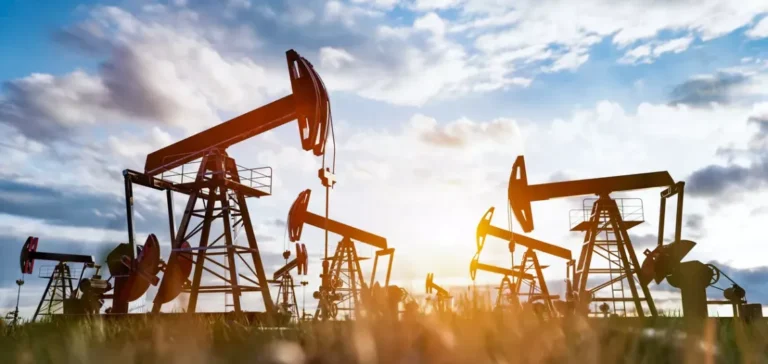Oil prices are expected to decline by 12.9% in 2025 compared to 2024, averaging $68.90 per barrel, according to the International Monetary Fund (IMF) in its World Economic Outlook report released on October 14. This decrease is attributed to weak global demand combined with continued supply expansion, particularly from non-member producers of the Organization of the Petroleum Exporting Countries and its partners (OPEC+).
Between March and August 2025, crude prices already dropped by 5.4%, fluctuating between $60 and $70 per barrel following the announcement of US tariffs in early April. The WTI November contract was trading at $58.75, down 74 cents, while ICE December Brent fell 88 cents to $62.44, according to market data at 1713 GMT.
Persistent imbalance between supply and demand
The IMF highlights that the International Energy Agency (IEA) forecasts global demand growth of only 700,000 barrels per day in 2025, while non-OPEC+ supply is expected to rise by 1.4 million barrels per day. This widening imbalance weighs on price expectations, despite OPEC+ implementing an accelerated production schedule.
High-cost producers, particularly in the United States, are acting as a loose price floor, with breakeven points between $60 and $65 per barrel. These levels indirectly influence futures markets, where IMF projections indicate a slight rebound toward $67.30 by 2030.
Tariffs dampen economic growth
During an October 14 press briefing, IMF Chief Economist Pierre-Olivier Gourinchas stated that the impact of US trade policies on the global economy has been more modest than initially expected. However, the measures have still contributed to weakening economic outlooks, with the IMF projecting global economic growth of 3.2% in 2025 compared to 3.3% in 2024.
Gourinchas explained that the absence of widespread retaliatory trade actions and the presence of loose financial conditions and investments in artificial intelligence helped offset the tariff shock. Nonetheless, its effects remain and continue to feed economic uncertainty.
Market correction risks tied to valuations
The report also notes that investor enthusiasm for artificial intelligence investments may pose an additional risk, echoing patterns seen during the late 1990s dot-com bubble. The IMF suggests a potential correction, though it remains uncertain for now.
Current projections show that the combination of slowing global growth, surplus oil production, and tepid demand continues to create an adverse environment for energy prices. Operators in the sector are facing tighter margins amid prolonged uncertainty.






















